
About the Commonwealth of Learning
The Commonwealth of Learning (COL) was established in 1987 by Commonwealth Heads of Government “… to create and widen access to opportunities for learning, making use of the potential offered by distance education and by the application of communication technologies to education.” (Memorandum of Understanding on the Commonwealth of Learning)
Hosted by the Government of Canada with headquarters in Burnaby, British Columbia, COL is the world’s only intergovernmental organisation solely concerned with the promotion and development of distance education and open learning.
The organisation is governed by a distinguished Board of Governors whose membership of up to 17 hail from around the Commonwealth and bring leadership and expertise in a wide range of areas.
COL’s greatest impact is in supporting efforts to provide Commonwealth citizens greater access to quality education and training through open, distance and technology-enabled learning, thereby allowing them to benefit from improved livelihoods, greater gender equity and overall economic, social and cultural development leading to sustainable development.
COL is committed to promoting equitable access to quality lifelong learning for all – believing, in effect, that access to learning opportunities will lead to progress in achieving sustainable development.
COL values and maintains an organisational culture that is respectful, ethical and fair. In line with this commitment, COL has in place a policy on Safeguarding to help keep all persons with whom it works and comes into contact with through its work safe from any form of sexual exploitation, abuse and harassment. COL’s Anti-Fraud Policy sets out the commitment to promoting a culture of integrity and transparency throughout the organisation where fraud and corruption will not be tolerated. COL enables individuals to report illegal, dishonest, or fraudulent activity in good faith and will be protected against retaliation or fear of retribution as outlined in COL’s Policy on Whistle Blowing.
About YEP
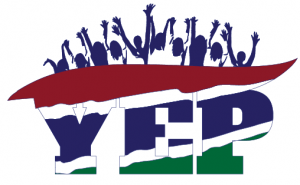 The Gambia Youth Empowerment Project (YEP) addresses the economic root causes of irregular migration by supporting youth employment and entrepreneurship. The project takes a market-led approach to improving the skills and employability of potential and returning migrants according to demands of the job market and simultaneously creating employment opportunities along Gambian value chains. YEP focuses on vocational training and support for micro and small-sized enterprises and creates new jobs in selected sectors through value addition and market linkages. The five-year project started in January 2017 and is funded by the European Union (EU) Emergency Trust Fund for Africa.
The Gambia Youth Empowerment Project (YEP) addresses the economic root causes of irregular migration by supporting youth employment and entrepreneurship. The project takes a market-led approach to improving the skills and employability of potential and returning migrants according to demands of the job market and simultaneously creating employment opportunities along Gambian value chains. YEP focuses on vocational training and support for micro and small-sized enterprises and creates new jobs in selected sectors through value addition and market linkages. The five-year project started in January 2017 and is funded by the European Union (EU) Emergency Trust Fund for Africa.
About ITC
 The International Trade Centre (ITC) is the joint agency of the World Trade Organization and the United Nations. ITC helps businesses in developing countries to become more competitive in global markets, speeding economic development and contributing to the achievement of the United Nations Global Goals for sustainable development.
The International Trade Centre (ITC) is the joint agency of the World Trade Organization and the United Nations. ITC helps businesses in developing countries to become more competitive in global markets, speeding economic development and contributing to the achievement of the United Nations Global Goals for sustainable development.
About The Trust Fund
The EU Emergency Trust Fund for Africa addresses the root causes of irregular migration and displaced persons in Africa. More specifically, it helps address the root causes of destabilisation, forced displacement and irregular migration by promoting equal opportunities, strengthening security, development and resilience of vulnerable people.
About IMVF
 Since 1988, IMVF has designed and participated in more than 160 projects in 10 different countries and in 10 diverse areas of intervention. Created in 1951 as a private institution of public utility, IMVF is a foundation for development and cooperation, that started its activity as a NGDO in 1988, in Sao Tome and Principe. From the 90s onward, we have expanded our action to other countries, mainly Portuguese Speaking Countries and broaden our scope of intervention. In 2017 we widened again our sphere of activities to new geographies in Africa and Latin America as well. The results achieved have turned IMVF into a key stakeholder in different areas of expertise and intervention such as Cooperation and Development.
Since 1988, IMVF has designed and participated in more than 160 projects in 10 different countries and in 10 diverse areas of intervention. Created in 1951 as a private institution of public utility, IMVF is a foundation for development and cooperation, that started its activity as a NGDO in 1988, in Sao Tome and Principe. From the 90s onward, we have expanded our action to other countries, mainly Portuguese Speaking Countries and broaden our scope of intervention. In 2017 we widened again our sphere of activities to new geographies in Africa and Latin America as well. The results achieved have turned IMVF into a key stakeholder in different areas of expertise and intervention such as Cooperation and Development.
About the Gambian-German Advisory Centre
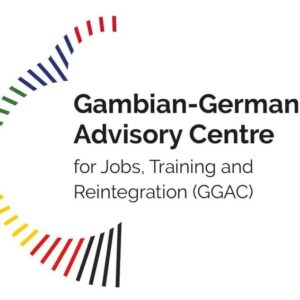
We support you free of charge on your way to new job prospects. This applies if you live in or want to return to the Gambia. Our team advises you on job applications, professional qualification or if you want to start a business. We also offer training and psychosocial assistance.
About GIZ
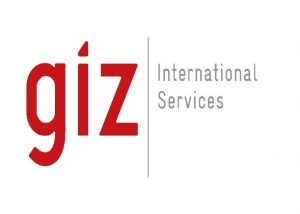 The Deutsche Gesellschaft für Internationale Zusammenarbeit (GIZ) GmbH or GIZ in short (English: German Corporation for International Cooperation GmbH is a German development agency headquartered in Bonn and Eschborn that provides services in the field of international development cooperation. GIZ mainly implements technical cooperation projects of the Federal Ministry for Economic Cooperation and Development (BMZ), its main commissioning party, although it also works with the private sector and other national and supranational government organizations (but usually not with non-governmental organizations) on a public benefit basis. In its activities GIZ seeks to follow the paradigm of sustainable development, whichaims at economic development through social inclusion and environmental protection. GIZ offers consulting and capacity building services in a wide range of areas, including management consulting, rural development, sustainable infrastructure, security and peace-building, social development, governance and democracy, environment and climate change, and economic development and employment.
The Deutsche Gesellschaft für Internationale Zusammenarbeit (GIZ) GmbH or GIZ in short (English: German Corporation for International Cooperation GmbH is a German development agency headquartered in Bonn and Eschborn that provides services in the field of international development cooperation. GIZ mainly implements technical cooperation projects of the Federal Ministry for Economic Cooperation and Development (BMZ), its main commissioning party, although it also works with the private sector and other national and supranational government organizations (but usually not with non-governmental organizations) on a public benefit basis. In its activities GIZ seeks to follow the paradigm of sustainable development, whichaims at economic development through social inclusion and environmental protection. GIZ offers consulting and capacity building services in a wide range of areas, including management consulting, rural development, sustainable infrastructure, security and peace-building, social development, governance and democracy, environment and climate change, and economic development and employment.
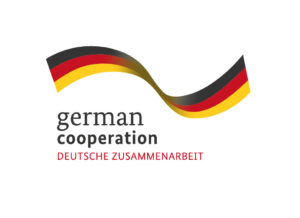 GIZ was established on January 1, 2011, through the merger of three German international development organizations: Entwicklungsdienst (DED), the Deutsche Gesellschaft für Technische Zusammenarbeit (GTZ), and Internationale the Deutsche Weiterbildung und Entwicklung (InWEnt). GIZ is one of the world’s largest development agencies, with a business volume in excess of €2.4 billion in 2016 as well as 19,506 employees spread over more than 120 countries. Additionally, in cooperation with the German Federal Employment Agency, GIZ operates the Centre for International Migration and Development (CIM), an agency specialized on international cooperation activities related to global labor mobility.
GIZ was established on January 1, 2011, through the merger of three German international development organizations: Entwicklungsdienst (DED), the Deutsche Gesellschaft für Technische Zusammenarbeit (GTZ), and Internationale the Deutsche Weiterbildung und Entwicklung (InWEnt). GIZ is one of the world’s largest development agencies, with a business volume in excess of €2.4 billion in 2016 as well as 19,506 employees spread over more than 120 countries. Additionally, in cooperation with the German Federal Employment Agency, GIZ operates the Centre for International Migration and Development (CIM), an agency specialized on international cooperation activities related to global labor mobility.

We’re a Community Based Organisation operating in Foni Bulock, Foni Berefet District in the West Coast of The Gambia. As the world rapidly drifts toward climate disaster related challenges so are climate change conscious communities, individuals, companies and governments are diversifying mitigation and restoration solutions in the fight against the global phenomenon in The Gambia.
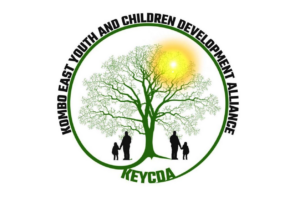 KEYCDA is an organization formed by the young people of Kombo East in the year 2005. Since they recognize the need to promote sustainable socio economic development of youth and children, and aware of the fact that youths & children are mostly the victim of unemployment and social discrimination particularly girls.
KEYCDA is an organization formed by the young people of Kombo East in the year 2005. Since they recognize the need to promote sustainable socio economic development of youth and children, and aware of the fact that youths & children are mostly the victim of unemployment and social discrimination particularly girls.About IFAD
 The International Fund for Agricultural Development (IFAD; French: Fonds international de développement agricole (FIDA)) is an international financial institution and a specialised agency of the United Nations that works to address poverty and hunger in rural areas of developing countries.
The International Fund for Agricultural Development (IFAD; French: Fonds international de développement agricole (FIDA)) is an international financial institution and a specialised agency of the United Nations that works to address poverty and hunger in rural areas of developing countries.
IFAD was established as an international financial institution in 1977 through United Nations General Assembly Resolution 32/107 (30 December 1977) as one of the major outcomes of the 1974 World Food Conference. Its headquarters is in Rome, Italy, and it is a member of the United Nations Development Group.[1] The President of the IFAD is Gilbert F. Houngbo from Togo, who was elected for a four-year term in 2017.
About CIVICUS
 CIVICUS is a global alliance of civil society organisations and activists dedicated to strengthening citizen action and civil society throughout the world.
CIVICUS is a global alliance of civil society organisations and activists dedicated to strengthening citizen action and civil society throughout the world.
We were established in 1993 and since 2002 have been proudly headquartered in Johannesburg, South Africa, with additional hubs across the globe. We are a membership alliance with more than 9,000 members in more than 175 countries.
Our definition of civil society is broad and covers non-governmental organisations, activists, civil society coalitions and networks, protest and social movements, voluntary bodies, campaigning organisations, charities, faith-based groups, trade unions and philanthropic foundations.
About National Enterprise Development Initiative
 NEDI’s mission is to build successful community-based units in The Gambia that effectively contribute to the development of sustainable livelihoods. We have our sights set on alleviating poverty among marginalized communities in The Gambia. We seek to address extreme poverty through education, social protection and safety nets, innovation, and enterprise development.
NEDI’s mission is to build successful community-based units in The Gambia that effectively contribute to the development of sustainable livelihoods. We have our sights set on alleviating poverty among marginalized communities in The Gambia. We seek to address extreme poverty through education, social protection and safety nets, innovation, and enterprise development.
About NYC
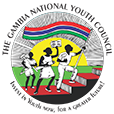 The Gambia National Youth Council (NYC) is a Public Agency established by an Act of Parliament in 2000. The agency is actively operating in all the 7 administrative regions and 48 districts of the Gambia with over 125 registered national and community based youth civil society organisations. Our mandate is to mobilise, coordinate and supervise youth organisations, implement national youth programmes and advise government on youth matters.
The Gambia National Youth Council (NYC) is a Public Agency established by an Act of Parliament in 2000. The agency is actively operating in all the 7 administrative regions and 48 districts of the Gambia with over 125 registered national and community based youth civil society organisations. Our mandate is to mobilise, coordinate and supervise youth organisations, implement national youth programmes and advise government on youth matters.
About GIEPA
 The Gambia Investment & Export Promotion Agency (GIEPA) is the national agency established by an Act of Parliament in July 2010 responsible for the promotion and facilitation of private sector investments into The Gambia. In offering investor–facilitation services, the Agency acts as investors’ first point of contact provides information on relevant procedures for setting up a business and helps form the necessary network of contacts in The Gambia for successful business operations.
The Gambia Investment & Export Promotion Agency (GIEPA) is the national agency established by an Act of Parliament in July 2010 responsible for the promotion and facilitation of private sector investments into The Gambia. In offering investor–facilitation services, the Agency acts as investors’ first point of contact provides information on relevant procedures for setting up a business and helps form the necessary network of contacts in The Gambia for successful business operations.
GIEPA advises and collaborates with the Government of The Gambia, the private sector and civil society towards developing a globally competitive business environment. Key functions centre on promoting the exportation of Gambian goods, developing and regulating The Gambia’s only business park, formulating investment promotion, export and enterprise development strategies, employment creation and wealth generation through private sector led growth as enshrined in the Vision 2020 as well as the Program for Accelerated Growth and Employment (PAGE, 2012-2015).
Mission Statement:
“To promote a conducive environment, attract investments, develop exports and support businesses with the overriding objective of contributing towards employment creation and wealth generation.”
Vision Statement:
“A world class agency that promotes and facilitates private sector led growth.”
About UNDP
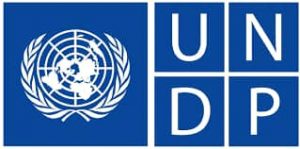
UNDP works in about 170 countries and territories, helping to achieve the eradication of poverty, and the reduction of inequalities and exclusion. We help countries to develop policies, leadership skills, partnering abilities, institutional capabilities and build resilience in order to sustain development results. On the ground in about 170 countries and territories, UNDP works to eradicate poverty while protecting the planet. We help countries develop strong policies, skills, partnerships and institutions so they can sustain their progress.
About UNESCO

UNESCO is the United Nations Educational, Scientific and Cultural Organization. It contributes to peace and security by promoting international cooperation in education, sciences, culture, communication and information. UNESCO promotes knowledge sharing and the free flow of ideas to accelerate mutual understanding and a more perfect knowledge of each other’s lives. UNESCO’s programmes contribute to the achievement of the Sustainable Development Goals defined in the 2030 Agenda, adopted by the UN General Assembly in 2015.
About MOTIE

The Ministry of Trade, Industry, Regional Integration and Employment (MOTIE) is mandated to formulate and implement trade, investment and industrial policies that promote investment in the productive sector for increased production and export, thus promotes trade as an engine of growth. It also formulates and implements employment, competition and labour matters, promulgates national standards and takes a lead role in trade negotiations in collaboration with other stakeholders for enhancing competitiveness.
About ASA
 The ASA Programme provides learning, qualification and engagement spaces on development policy for young people who want to understand global contexts, ask critical questions and advocate for a just world. Here you can find more information about our work.
The ASA Programme provides learning, qualification and engagement spaces on development policy for young people who want to understand global contexts, ask critical questions and advocate for a just world. Here you can find more information about our work.
About Nema Project
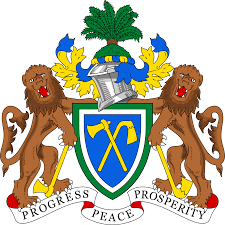
The goal of this project is to reduce poverty among rural women and young people through improved productivity based on sustainable land and water management practices. The project responds to two major challenges in rural areas of country:
- Limited productivity and economic carrying capacity of land used for farming
- Poorly developed domestic markets, which generate very low real demand for the main produce of smallholders.
To address these challenges, the project supports watershed development and agricultural commercialization. And in order to consolidate and scale up the approach taken by ongoing IFAD-financed operations in The Gambia, it is nationwide in scope.
About Roots Project
![]()
The Resilience of Organizations for Transformative Smallholder Agriculture Project (ROOTS) was launched on 09 February 2021, with co-funding from the International Fund for Agricultural Development (IFAD), the OPEC Fund for International Development (OFID), the GEF Least Developed Countries Fund (LDCF), the French Development Agency (AFD), the Government of the Gambia and the Project’s beneficiaries.The main goal of ROOTS is to improve food security, nutrition and resilience of smallholder farmers to climate change in The Gambia. Its development objective is to increase agricultural productivity and access to markets for enhanced security and for the resilience of family farms and Farming Organizations.
 InSIST Global Gambia (ltd) is a Technology Company that specializes in building innovative solutions for companies and institutions in various sectors, such as Education, Business and Health. Established in 2011, InSIST has built multiple software solutions for businesses and institutions, therefore slowly becoming a dominant player in the sub region. Through consistent innovation and market analysis, InSIST has been able to define itself as an engineering firm with a difference, we are able to deliver quality software products at affordable prices. We also provides sales, technical support, training and consulting in the niche market of software products.
InSIST Global Gambia (ltd) is a Technology Company that specializes in building innovative solutions for companies and institutions in various sectors, such as Education, Business and Health. Established in 2011, InSIST has built multiple software solutions for businesses and institutions, therefore slowly becoming a dominant player in the sub region. Through consistent innovation and market analysis, InSIST has been able to define itself as an engineering firm with a difference, we are able to deliver quality software products at affordable prices. We also provides sales, technical support, training and consulting in the niche market of software products.
